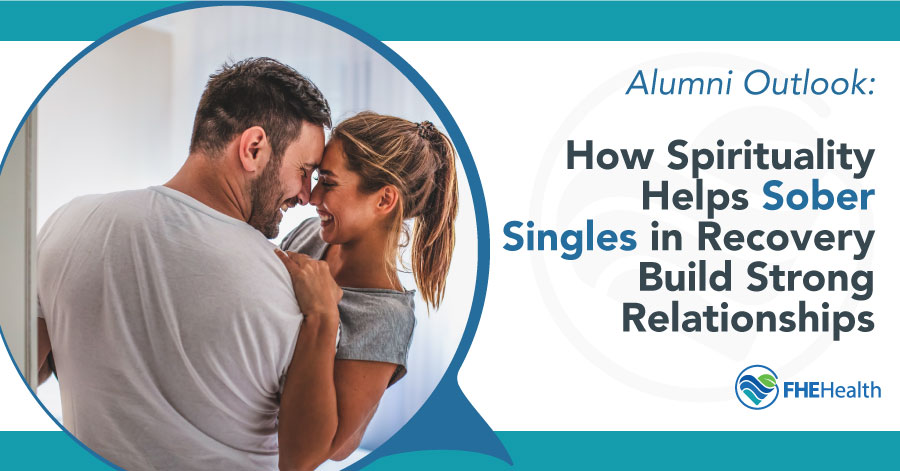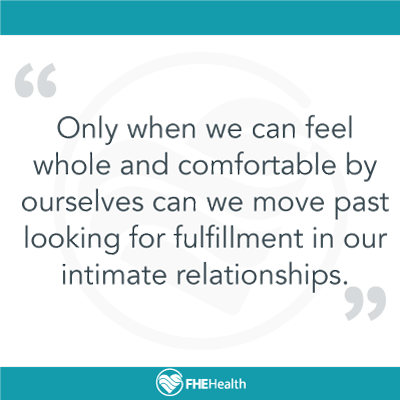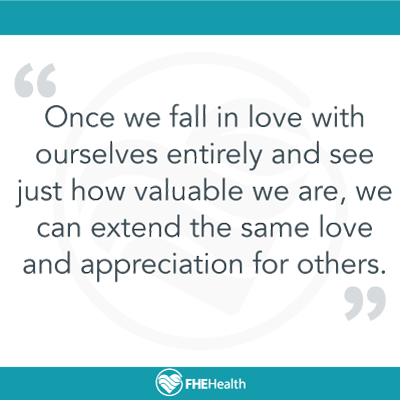
Let me preface this blog by making it clear that romantic relationships are not my forte; in fact, I’ve learned a whole lot about them through trial and error in sobriety. Fortunately, through the things I have learned in Alcoholics Anonymous and the spiritual principles that I try hard to live by, I have a solid basis for what I want out of the most important relationships in my life. Today, we live in a world where many of our relationships are merely thriving on a give-and-take barter system. It would be fair to say that addicts, in particular, are keen on finding relief from our own emotional inadequacy through the person we choose to seek out a relationship with. Getting sober, I have found that these types of relationships are not only empty but unsustainable.
Spirituality is not only the anecdote to my ravishing addiction, but it has also helped me craft better relationships. Rather than solely looking for a relationship to fill a void, validate a fear, or stroke my ego, I have begun to consider what I can bring to a relationship. I look at building relationships as a means to share the compassion, love, and joy that have blossomed within me, thanks to my sobriety.
Creating unity
Where there is self-love, this same sweetness finds its way into every aspect of life, including your interactions with others. Most recovering addicts come into recovery absolutely broken down and wallowing in self-hatred. I know I spent a long time in early sobriety, consistently comparing myself to others rather than relating. Spirituality bridged the gap, created a sense of oneness, and ultimately became the foundation for creating unity amongst my fellows. This is a necessary prerequisite for a long-lasting, healthy relationship.
I have never been a pro at vulnerability and intimacy. In fact, these are two subjects that I still find myself struggling with at times. I have often thought, “If he/she only knew about me, then they will truly leave.” This unhealthy thought process has prevented me from connecting with so many romantic partners. Over time, I have come to find that the intimate relationship I have with God and the spiritual women in my life exhibit the exact characteristics I seek within my romantic relationships. The conclusion that nothing happens in God’s world by mistake has helped me let go of the expectations and fears.
Extending understanding
 Romantic relationships take dedication, commitment, and a lot of hard work. Addicts and alcoholics — such as myself– are the instant gratification type of humans. Most of us allocate all of our resources to our substance abuse. Imagine if we took that same zeal and applied it to our interpersonal relationships. For me, I learn more about applying the same level of commitment to my relationships through the spiritual principles I have learned through the 12 steps of Alcoholics Anonymous. In order to extend understanding to another human being, I must first become aware of my own defects and shortcomings. Once I am able to put myself on the same playing field as everyone around me, especially those I love, it is much easier to extend grace and understanding.
Romantic relationships take dedication, commitment, and a lot of hard work. Addicts and alcoholics — such as myself– are the instant gratification type of humans. Most of us allocate all of our resources to our substance abuse. Imagine if we took that same zeal and applied it to our interpersonal relationships. For me, I learn more about applying the same level of commitment to my relationships through the spiritual principles I have learned through the 12 steps of Alcoholics Anonymous. In order to extend understanding to another human being, I must first become aware of my own defects and shortcomings. Once I am able to put myself on the same playing field as everyone around me, especially those I love, it is much easier to extend grace and understanding.
Spirituality has a magical way of putting things into the proper perspective. Slowly but surely, my spiritual connection with a power greater than myself continues to eliminate any idea of being superior or inferior. Every human is unique, and our uniqueness should always be appreciated. However, we are all part of a collective. Intimate relationships thrive on open and honest communication, which is only possible when two individuals trust one another and seek to avoid criticizing and judging each other.
Spiritual connectedness increases happiness.
 Rising from the grave of our self-induced hell and stepping into a life that promises to be “beyond our wildest dreams” can seem daunting. However, that’s exactly what my experience in recovery has looked like. I was an alcoholic of the hopeless variety; therefore, I was sure to drink again without a spiritual solution. Once I began to establish a spiritual connection with God, my life got immeasurably better. I remember the very first time I felt happy again – I was walking out of work and the sun seemed a little warmer, the grass a little greener, and the birds were chirping the sweetest melodies.
Rising from the grave of our self-induced hell and stepping into a life that promises to be “beyond our wildest dreams” can seem daunting. However, that’s exactly what my experience in recovery has looked like. I was an alcoholic of the hopeless variety; therefore, I was sure to drink again without a spiritual solution. Once I began to establish a spiritual connection with God, my life got immeasurably better. I remember the very first time I felt happy again – I was walking out of work and the sun seemed a little warmer, the grass a little greener, and the birds were chirping the sweetest melodies.
I began to notice a distinct shift in the way I was interacting with the world around me. Happiness is an inside job. The more I began to submit myself to a new spiritual way of living, the happier I became. I began to open myself up to be more patient, loving, and tolerant of the people in my life that I love. Seeking spirituality will most certainly increase your overall happiness as well as the success of your relationships.
Recognizing that love and attachment are different

Almost every single addict and alcoholic I have met has struggled with codependency. For many of us, it would be fair to say that we have confused unhealthy attachments with love more times than we’d care to admit. Only when we can feel whole and comfortable by ourselves can we move past looking for fulfillment in our intimate relationships. It is only when I can truly be at peace within myself that I can love without the burden of attachment.

Love and attachment are two totally different things. This has probably been one of the most challenging but most liberating rewards that continue to prove itself true through my ever-evolving spiritual life. For as long as I can remember, I have blurred the lines between love and attachment – to my own demise. Even long into my sobriety, I would confuse the attachment to my ideas of love with love itself, which has caused me so much pain. Dropping the connection between love and attachment is only possible when we take the time to grow spiritually. Once we fall in love with ourselves entirely and see just how valuable we are, we can extend the same love and appreciation for others.






